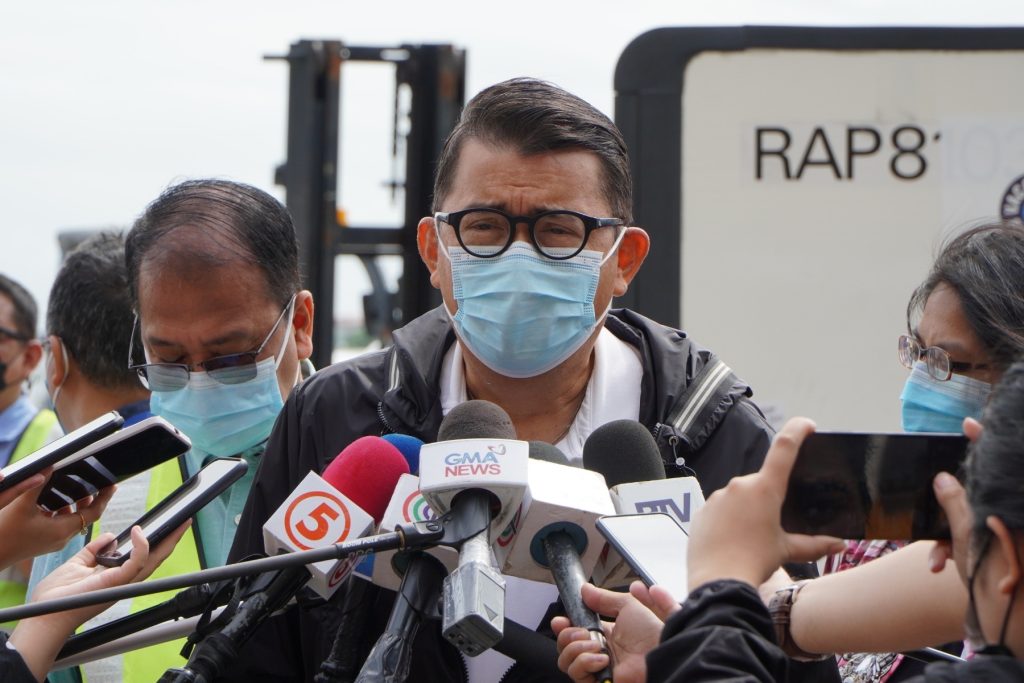
Micro Enterprises Should Be Exempted From Wage Increase Order
May 17, 2022
Boosting our way to economic growth
May 19, 2022
Concepcion To HTAC: Apply CDC Guidelines For Second Booster
The Health Technology Assessment Council (HTAC) should apply the guidelines already adopted by the Centers for Disease Control (CDC) for second booster shots so that the country can address the expiry of millions of Covid vaccines, speed up booster uptake, and head off possible surges in infection that could come with the entry of new Covid variants.
Presidential Adviser for Entrepreneurship Joey Concepcion made this appeal following discussions with medical experts last Monday, May 16. “The fact is that variants can reach the country and we should just better prepare for that by giving people the vaccines that will protect them,” he said.
The HTAC is an independent advisory body providing guidance to the Department of Health and PhilHealth on the coverage of health interventions and technologies to be funded by the government. It is currently chaired by Dr. Marita Tolentino-Reyes, with eight others who form its core committee. There are also 21 more members forming the seven subcommittees under it, including a Subcommittee on Vaccines.
For now, the HTAC is limiting second booster shots to the immunocompromised, although it is not clear what formed the basis of the criteria. This differs from the criteria of the CDC, which are: persons who received their boosters four months prior who are either 50 years or older, or those 12 years or older and moderately or severely immunocompromised. The CDC also has provisions for those who received two doses of the J&J/Janssen vaccine who are 18 years or older.
“We should pattern the second booster shots after the CDC guidelines so we can have a better chance of protecting the vulnerable against Covid. I think the HTAC should change the manner by which they evaluate because we are in an emergency,” he said.
“The HTAC must understand that we have the supply and if they delay the approval, they can’t expect the NVOC (National Vaccination Operations Center) to deliver in a few weeks; [the vaccines] might expire,” said Dr. Ted Herbosa, member of the Vaccine Expert Panel. Dr. Herbosa believes that boosters, including the second booster shot, should now be allowed for all categories. “It was only when we started to approve everybody that the growth became exponential.”
However, this all hinges on how swiftly the HTAC does its work. “Their decision must be timely so it can create a meaningful effect,” said Dr. Herbosa. He further observed that the HTAC was not designed for emergency situations, but instead for government procurement of products for universal healthcare. ”It is trying to be cost-effective,” he said, and explained that it might not be suited for the current situation.
There are currently some 90 million doses of the existing formulation of the Covid-19 vaccine available, sourced from donations, the private sector and those bought by the government. The experts were in agreement that the most cost-effective and efficient way of using these will be to give them to those who are already willing.
Based on a survey conducted by OCTA Research, 92 percent of the respondents said they are willing to get vaccinated, and 70 percent are willing to get boostered.
Public health advocate Dr. Tony Leachon said that even with mild infections, productivity can still suffer. “The main concern is productivity. Infections will not hospitalize but you still cannot go to work,” he said.
Concepcion said that the country cannot afford to slacken its economic recovery as it must remain healthy to repay its debt and prevent the stagflation that could come with higher commodity prices.
The possibility of a phenomenon called long covid was also raised. Dr. Leachon reported seeing
40 to 50 percent of his patients suffering from long Covid. OCTA Research’s Dr. Michael Tee, who is also a rheumatologist, said that long Covid brings with it a decrease in the quality of life, owing to the prolonged muscle and joint pain associated with long Covid. He reported that 20 to 40 percent of Covid patients experienced this lingering effect.
The emergence of new variants is also threatening to raise infection numbers. The Omicron variants BA.4 and BA. have become variants of concern in Europe, although not by the World Health Organization as yet. According to the UP Philippine Genome Center, neither of the Omicron subvariants have been detected in the country, although the subvariant BA.2.12.1 was detected in the country last week.

2/F RFM Corporate Center, Pioneer cor. Sheridan Sts. Mandaluyong City, Metro Manila, Philippines

